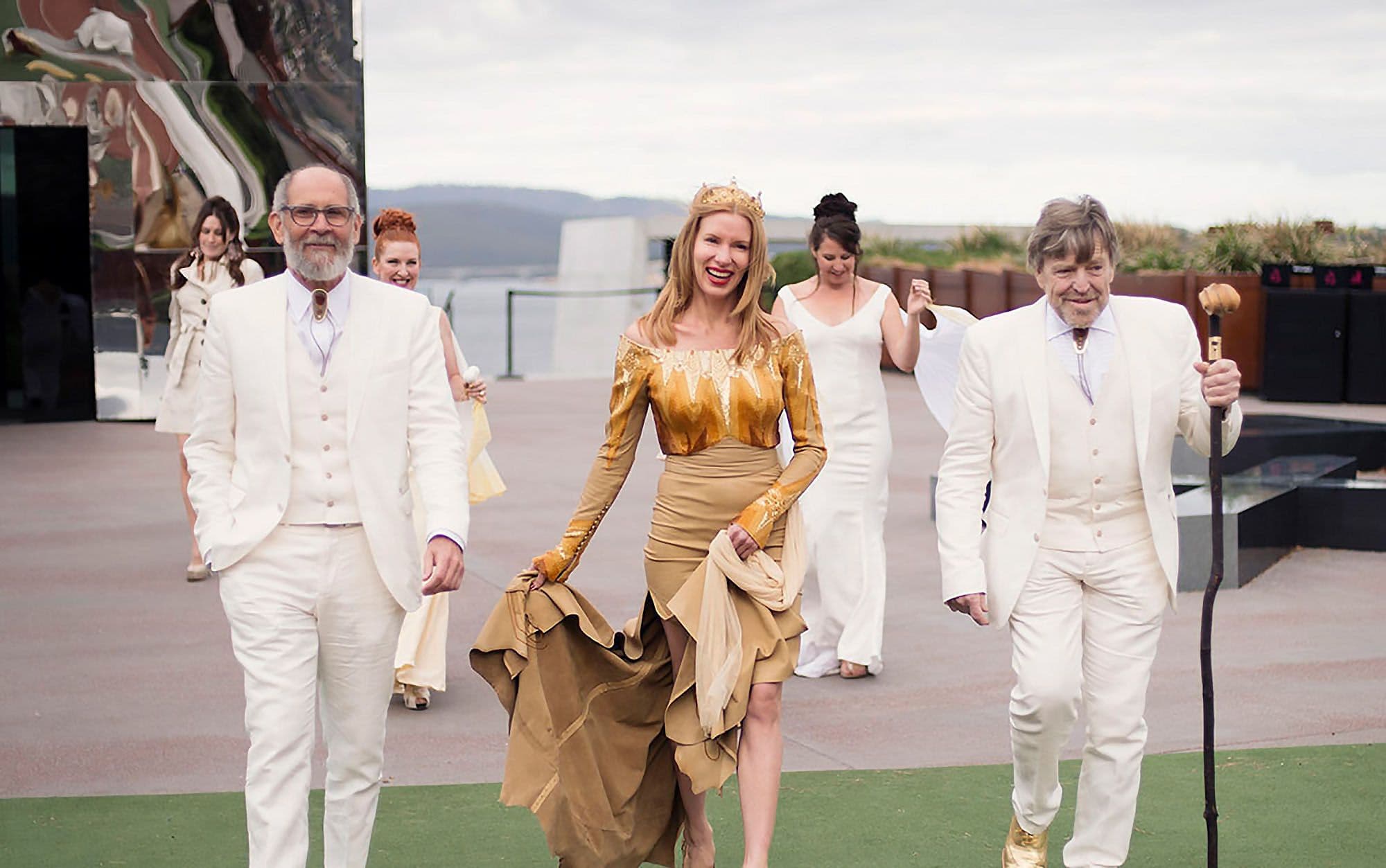The Believer

Unless you are an internet pioneer, a libertarian, a Deadhead, or my wife, you probably have never heard of John Perry Barlow, who died today after lingering too long (or not nearly long enough), but after having had a serious crack at reframing the internet in terms that didn’t make it a perverse analogue of the default world. Barlow was a relentless advocate for internet freedom, and was a co-founder of the Electronic Freedom Foundation. Just dead, he’d already be rolling in his grave about the loss of net neutrality.
I met Mr. Barlow a few times before he gave Kirsha away, just moments before she was to become my wife. She called him her mentor, but at the wedding he replaced her father, and often before. He was a father to everybody who participated in the internet as an extension of the organic rather than industrial, and as a tool for equality of opportunity rather than an electronic road rage homologue.
I disagreed with him frequently—I tend to be unsupportive of those who proselytise morality that contravenes the dictums of biology. My feeling is that the war with our evolutionary history is a massacre, so Barlow’s unfettered libertarianism (which looks like social Darwinism, rather than like the more collegial reciprocal altruism and kin-support that is a key driver, to my understanding, of evolutionary biology) doesn’t sit well with me. But, as with many ideologies, the honour resides not in the belief but in the believer. And Barlow’s support was honourable, and came from seeking self-denial, rather than guru-ism.
Amongst his widely disseminated ‘Principles of Adult Behaviour’:
Never assume the motives of others are, to them, less noble than yours are to you.
Never forget that, no matter how certain, you might be wrong.
And,
Become less suspicious of joy.
These are noble, whatever the substantiating philosophy. Kirsha embraces joy wholeheartedly, and John Perry Barlow gave her joy. She is weeping now, but he will give her joy again. Her sadness motivated me to do some reading. In an article about his misconceiving Africa comes this gem: ‘Just now I am hurtling toward Mombasa, an hour late for my 15 minutes of fame’.
Also in Africa, he meets a boy:
“‘Hello,’ he said brightly. ‘How is your life?’
‘My life is good,’ I said, meaning it. ‘How is your life?’
‘My life is good, too!’ he said, meaning it every bit as earnestly. He had no shoes. He was very dirty. He had probably been working for about 10 hours. Altogether, his family makes maybe 500 bucks in a decent year. His life is good. How is your life?”
To answer his question: Better for having known him.
Barlow’s life was good.